Using bibliographies on Overleaf
Introduction
It's possible to include references in Overleaf using all of LaTeX's major bibliography management programs: biblatex, natbib and bibtex. This article explains how to:
- manually create a new
.bibfile for storing your bibliography database - upload an existing
.bibfile into your Overleaf project - create a
.bibfile starting from an Overleaf template.
Note: If you have a paid Overleaf account, the article How to link your Overleaf account to Mendeley and Zotero shows how to create a .bib file by importing references from Mendeley or Zotero.
Creating your bibliography database
To create a new bibliography file in your Overleaf project, in the editor, click New File icon:
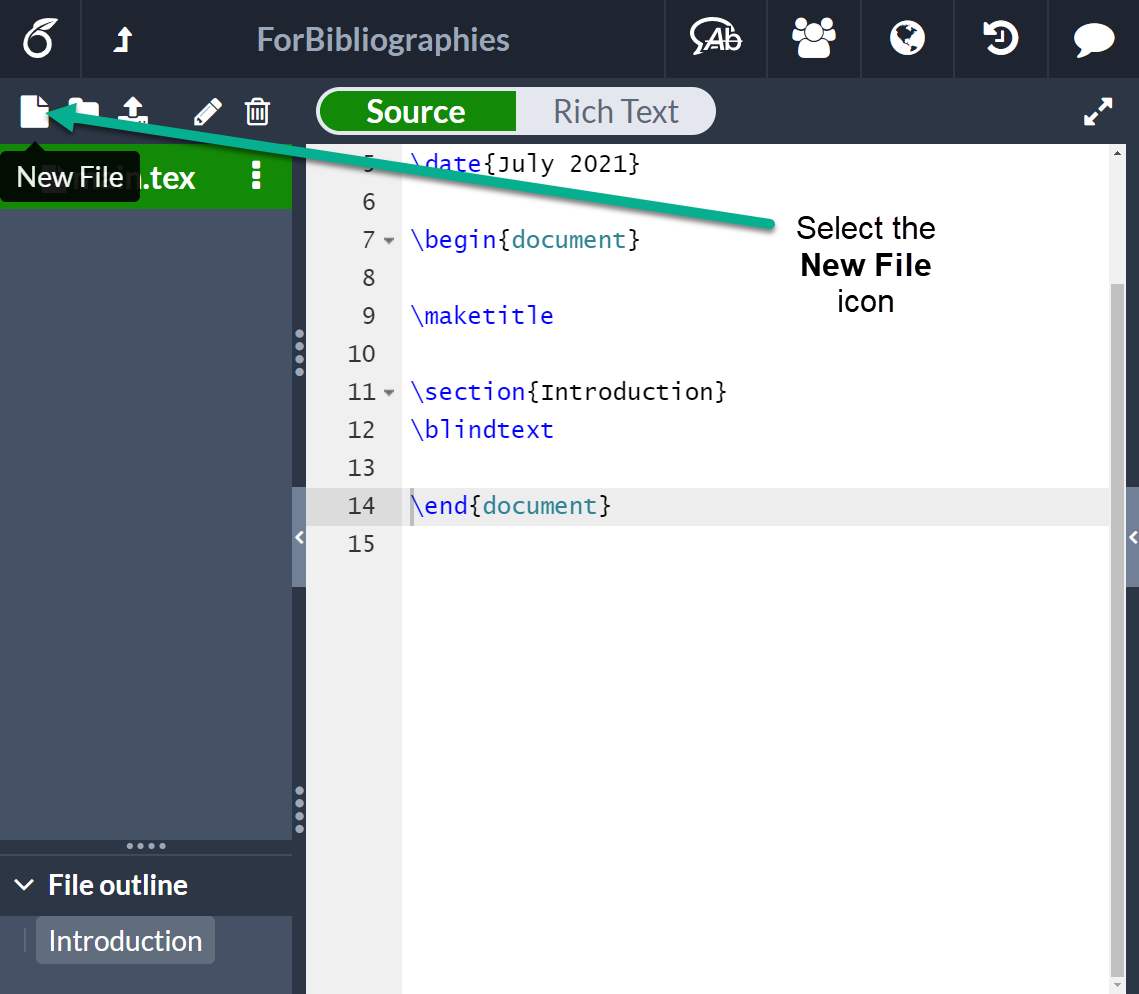
An input box will appear for you to set the name of the new file. The file should have the .bib extension, in this example it is called mybibliography.bib. Now click on Create.
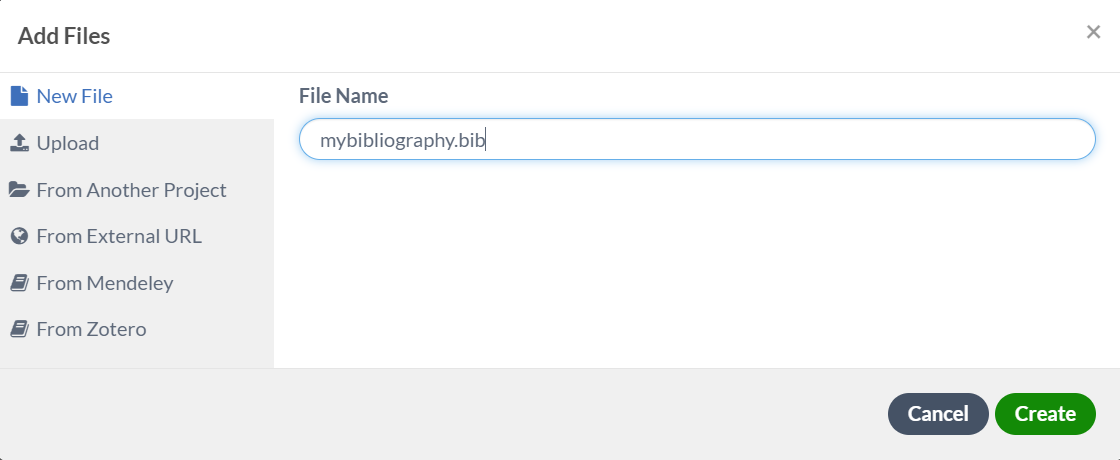
A new file will be listed in the left panel, click it to edit its contents. Add your bibliography entries there.
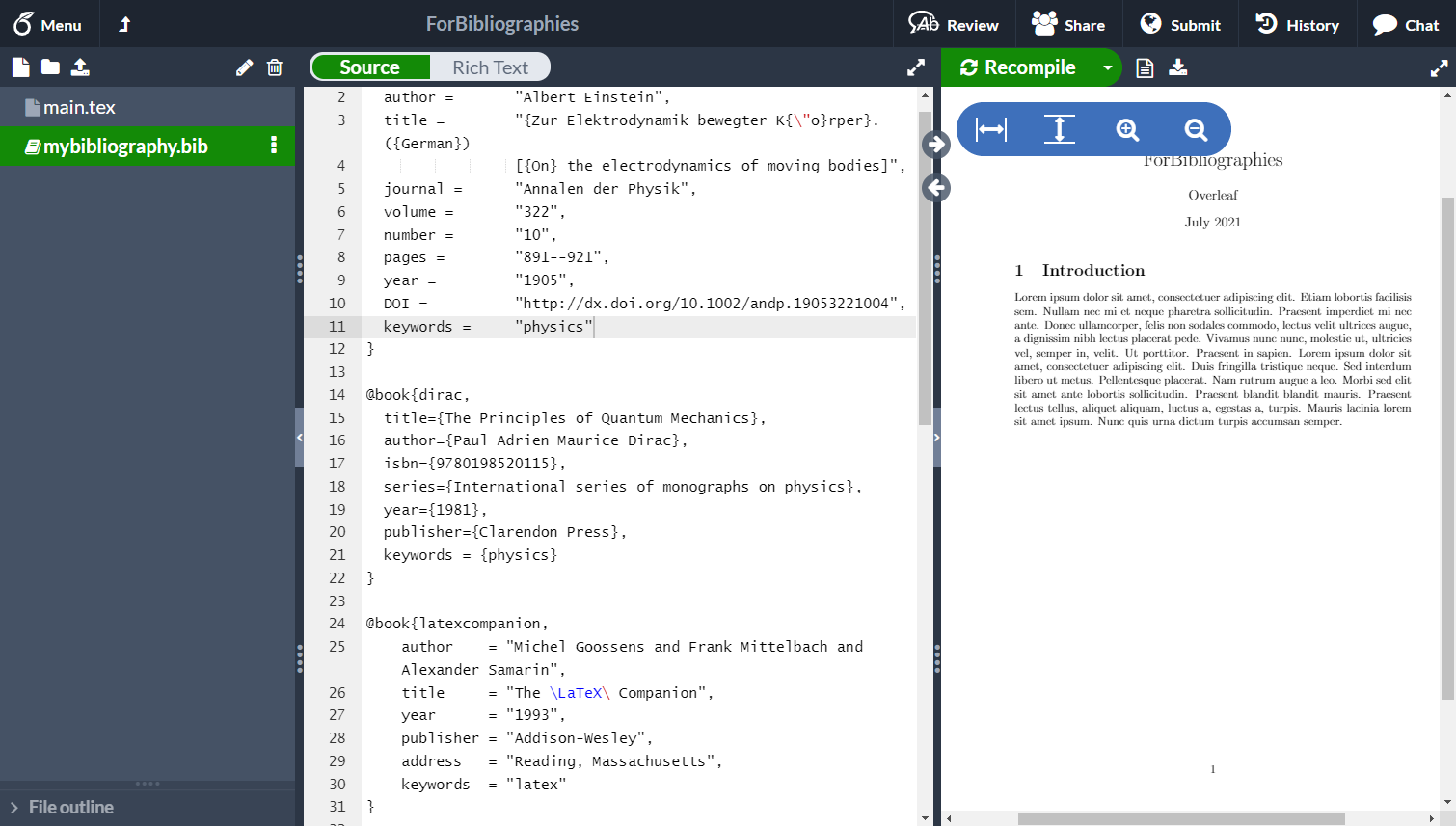
Now you can import this .bib file in the main .tex file. See the next example.
\documentclass{article}
\usepackage[
backend=biber,
style=alphabetic,
sorting=ynt
]{biblatex}
\addbibresource{mybibliography.bib}
\title{Bibliography management: \texttt{biblatex} package}
\author{Share\LaTeX}
\date{ }
\begin{document}
\maketitle
\section{First section}
Using \texttt{biblatex} you can display bibliography divided into sections,
depending of citation type.
Let's cite! The Einstein's journal paper \cite{einstein} and the Dirac's
book \cite{dirac} are physics related items.
Next, \textit{The \LaTeX\ Companion} book \cite{latexcompanion}, the
Donald Knuth's website \cite{knuthwebsite}, \textit{The Comprehensive
Tex Archive Network} (CTAN) \cite{ctan} are \LaTeX\ related items; but
the others Donald Knuth's items \cite{knuth-fa,knuth-acp} are dedicated
to programming.
\medskip
\printbibliography
\end{document}
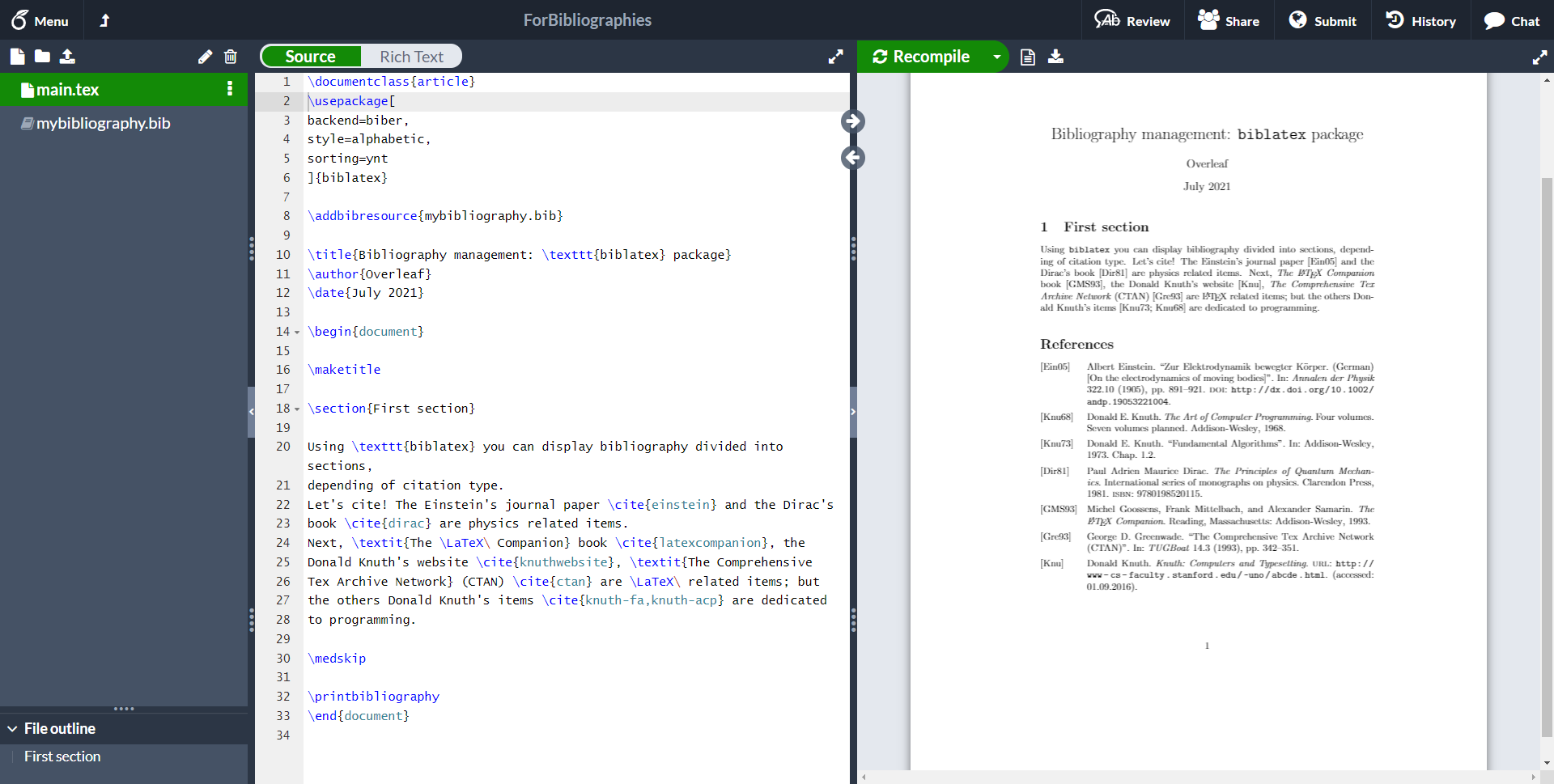
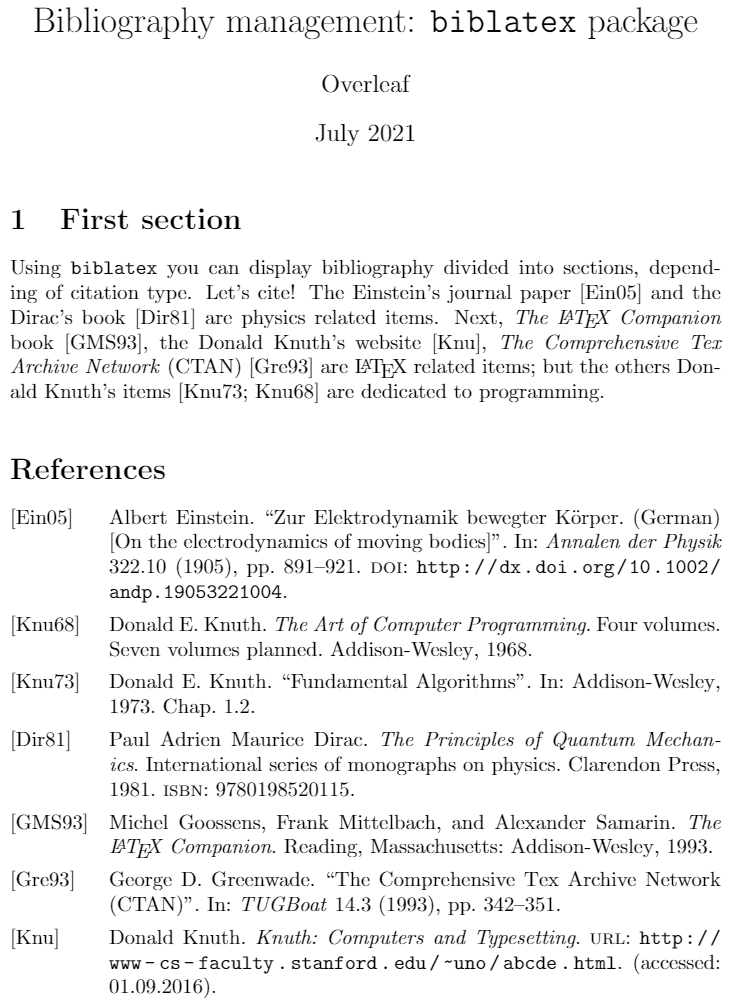
The command \addbibresource{mybibliography.bib} adds the created bibliography file to the document so you can use those references. See Bibliography management in LaTeX for more information about bibliography management.
Uploading your bibliography database
If you already have a bibliography file that you need to use in a Overleaf project, you can upload it. Click the Upload icon located on top of the left panel.
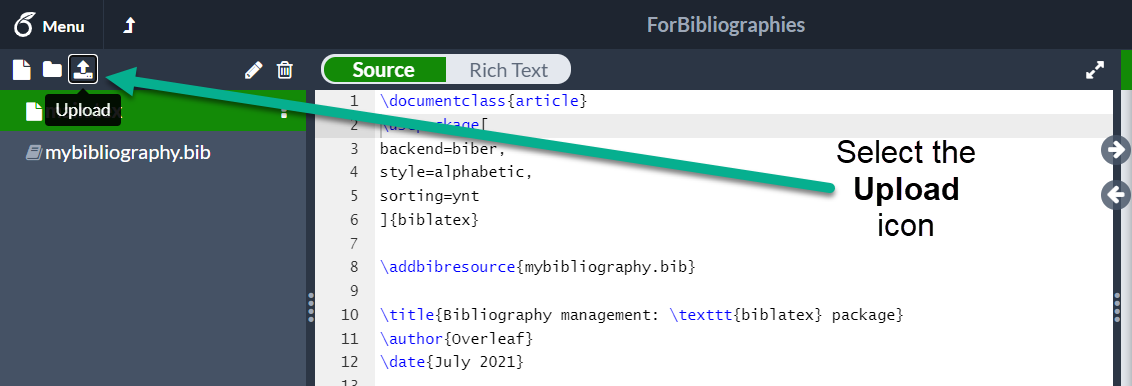
A dialog box will appear, you can either drag and drop the .bib file(s), or choose select from your computer to upload file(s) from your device.
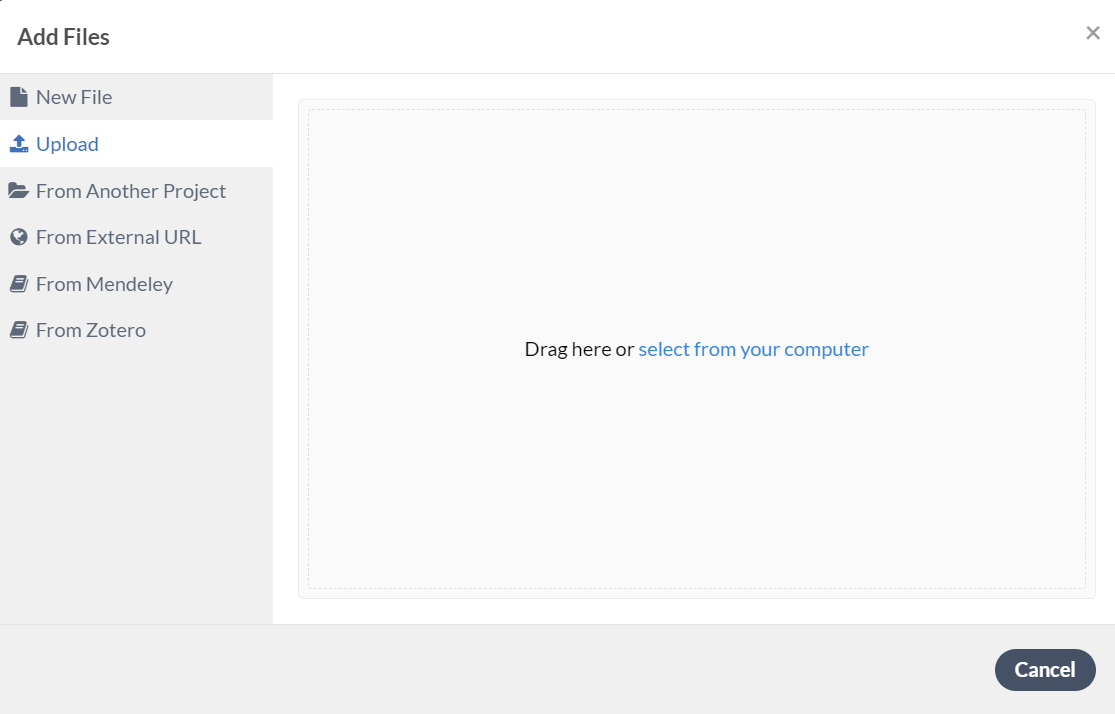
Once the upload process is finished you can include the .bib file in your main .tex document.
Using a template
The Overleaf Gallery provides a large collection of templates, including several bibliography-related templates:
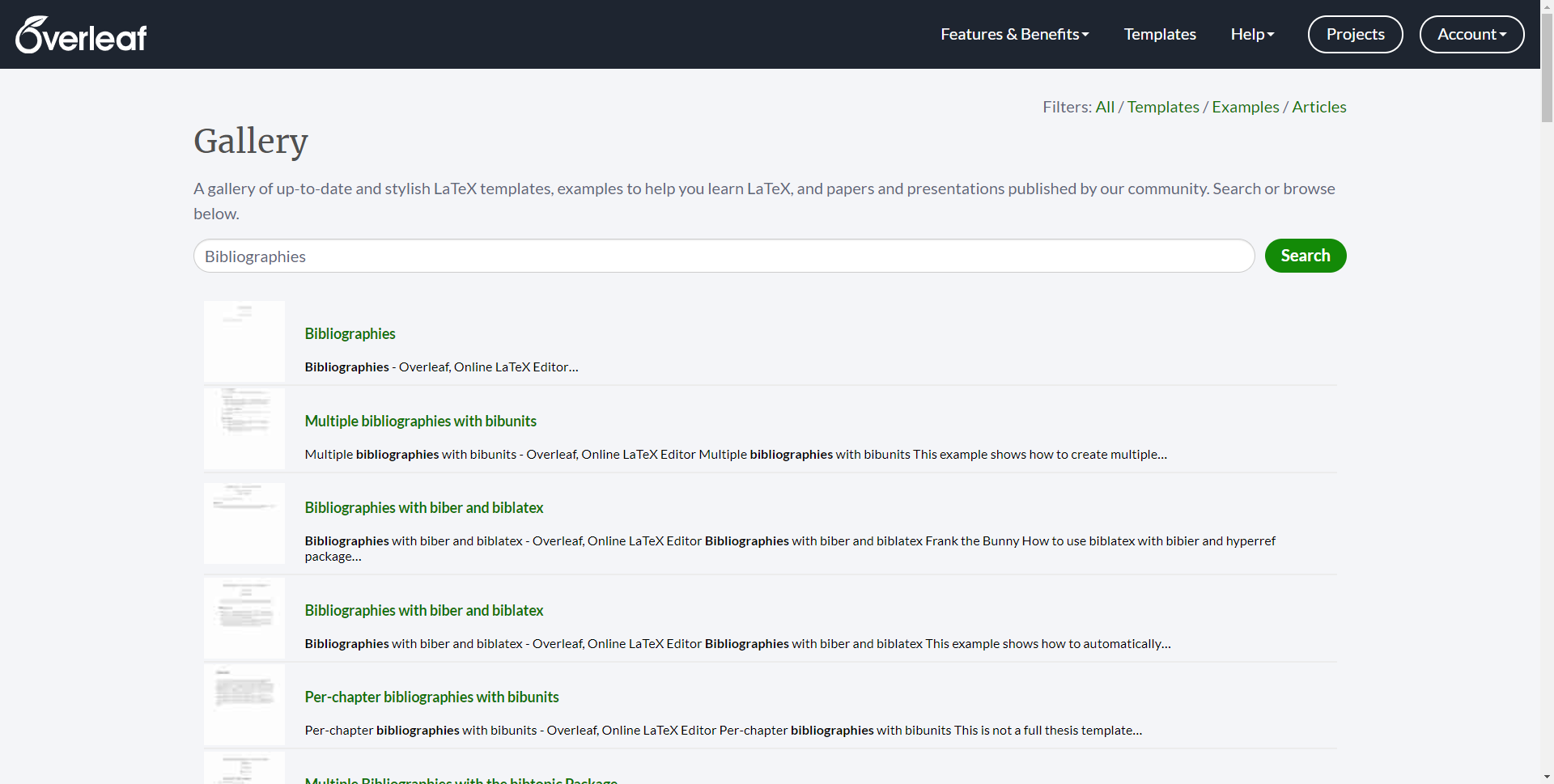
For example, a Gallery search lists the entry Multiple bibliographies with bibunits which shows how to create multiple bibliographies/reference lists in the same document:
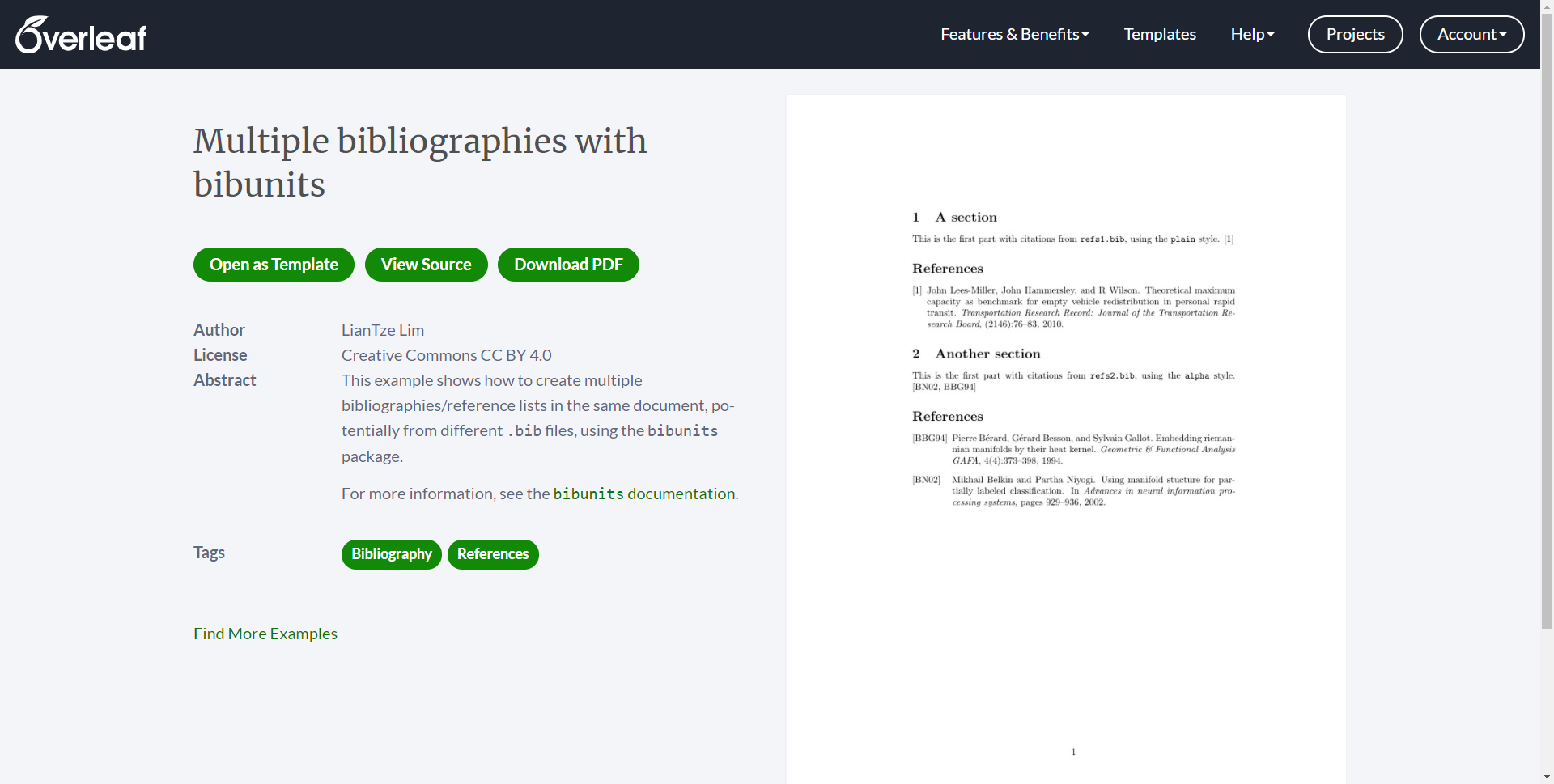
If you select "Open as Template" Overleaf will create a new project which you can modify and use as a basis for your work:
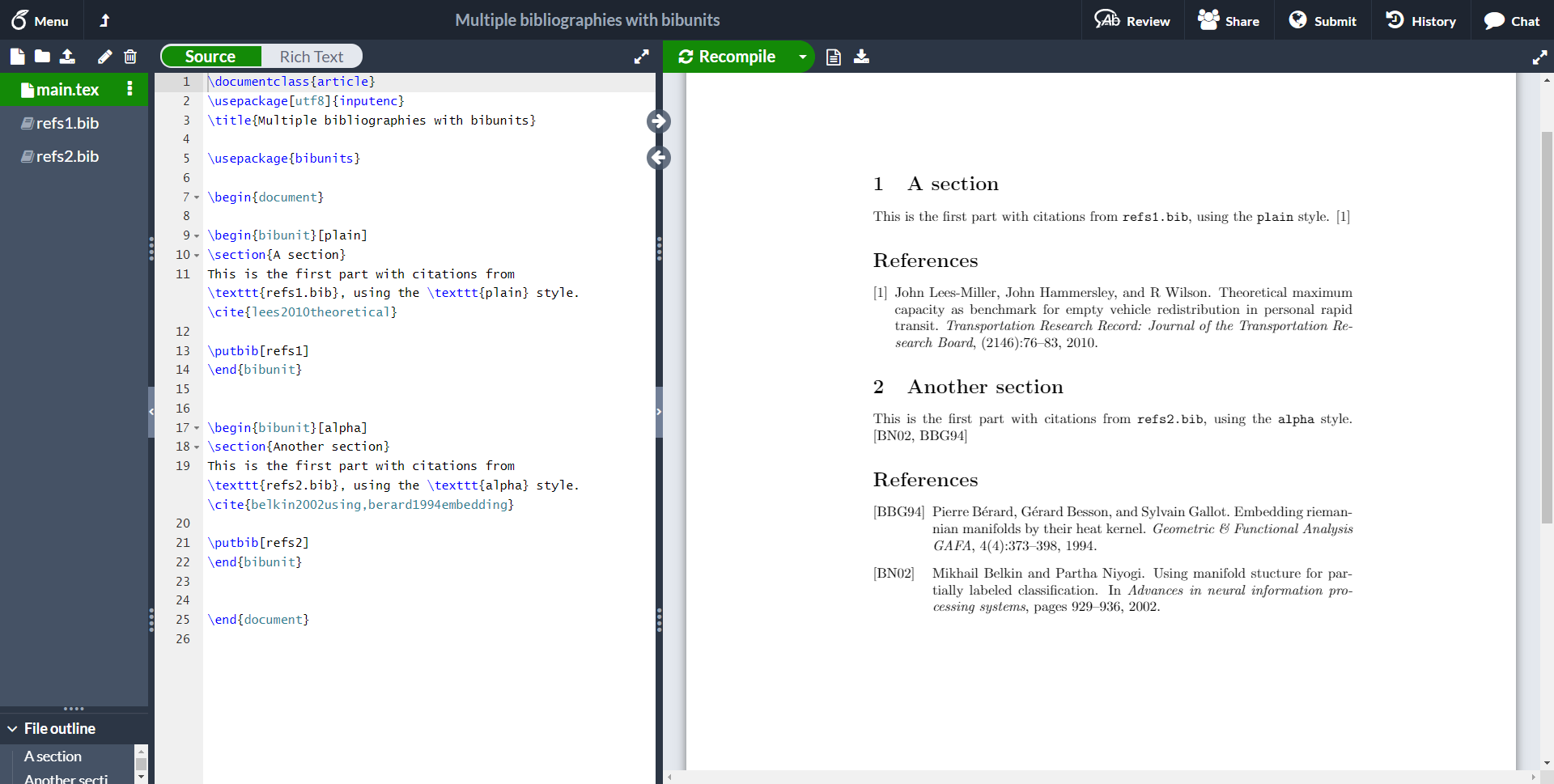
Supported bibliography packages
For more information about bibliography management in LaTeX see.
Overleaf guides
- Creating a document in Overleaf
- Uploading a project
- Copying a project
- Creating a project from a template
- Using the Overleaf project menu
- Including images in Overleaf
- Exporting your work from Overleaf
- Working offline in Overleaf
- Using Track Changes in Overleaf
- Using bibliographies in Overleaf
- Sharing your work with others
- Using the History feature
- Debugging Compilation timeout errors
- How-to guides
- Guide to Overleaf’s premium features
LaTeX Basics
- Creating your first LaTeX document
- Choosing a LaTeX Compiler
- Paragraphs and new lines
- Bold, italics and underlining
- Lists
- Errors
Mathematics
- Mathematical expressions
- Subscripts and superscripts
- Brackets and Parentheses
- Matrices
- Fractions and Binomials
- Aligning equations
- Operators
- Spacing in math mode
- Integrals, sums and limits
- Display style in math mode
- List of Greek letters and math symbols
- Mathematical fonts
- Using the Symbol Palette in Overleaf
Figures and tables
- Inserting Images
- Tables
- Positioning Images and Tables
- Lists of Tables and Figures
- Drawing Diagrams Directly in LaTeX
- TikZ package
References and Citations
- Bibliography management with bibtex
- Bibliography management with natbib
- Bibliography management with biblatex
- Bibtex bibliography styles
- Natbib bibliography styles
- Natbib citation styles
- Biblatex bibliography styles
- Biblatex citation styles
Languages
- Multilingual typesetting on Overleaf using polyglossia and fontspec
- Multilingual typesetting on Overleaf using babel and fontspec
- International language support
- Quotations and quotation marks
- Arabic
- Chinese
- French
- German
- Greek
- Italian
- Japanese
- Korean
- Portuguese
- Russian
- Spanish
Document structure
- Sections and chapters
- Table of contents
- Cross referencing sections, equations and floats
- Indices
- Glossaries
- Nomenclatures
- Management in a large project
- Multi-file LaTeX projects
- Hyperlinks
Formatting
- Lengths in LaTeX
- Headers and footers
- Page numbering
- Paragraph formatting
- Line breaks and blank spaces
- Text alignment
- Page size and margins
- Single sided and double sided documents
- Multiple columns
- Counters
- Code listing
- Code Highlighting with minted
- Using colours in LaTeX
- Footnotes
- Margin notes
Fonts
Presentations
Commands
Field specific
- Theorems and proofs
- Chemistry formulae
- Feynman diagrams
- Molecular orbital diagrams
- Chess notation
- Knitting patterns
- CircuiTikz package
- Pgfplots package
- Typesetting exams in LaTeX
- Knitr
- Attribute Value Matrices
Class files
- Understanding packages and class files
- List of packages and class files
- Writing your own package
- Writing your own class